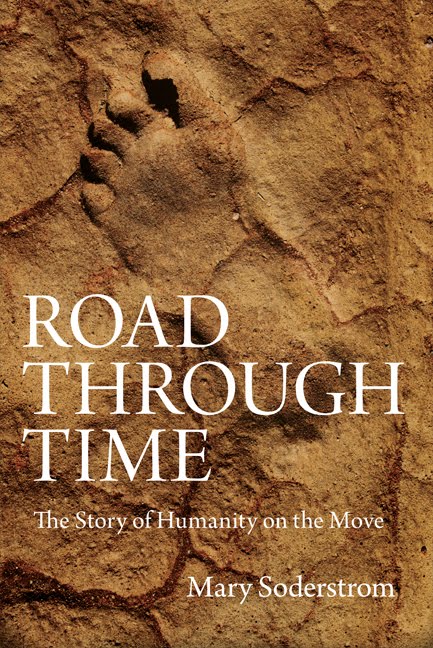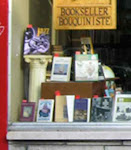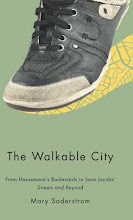Tuesday 28 October 2008
Reading for Hard Times: A Handful of Novels about How We Got Where We Are, How People Cope, and Krugman on How to Turn Things around
What to read when the news is so depressing? What are the books that can help get us through this rough period? I thought about that this morning when I was out walking, Good times and wars seem to invite more fictional creations than do depressions, or so it seems to me after, admittedly, short reflection.
Two books about how the world gets into a bad spot:
The Kill by Emile Zola: Published in 1872, it tells the riveting story of speculation, greed and lust in the Paris of Napoléon III and Georges-Eugène Haussmann. It’s a book I discovered when researching The Walkable City and which two of my book groups are discussing this year. A sexy story that sounds extremely contemporary
The Great Gatsby by F. Scott Fitzgerald: I don’t believe I’ve properly appreciated this book in the past, since it’s characters seemed to me to be so frivolous. But I expect I’ve underestimated the role of frivolity in the human aspirations. Fitzgerald was writing before the Crash of 1929, but he very brilliantly exposes the society that raced headlong toward disaster. A cautionary tale whose import I (and many others) had forgotten
Three writers on the difficulties of life in hard times:
The three books of Wyoming stories by Annie Proulx, Close Range, Bad Dirt and Fine Just the Way It Is. There isn’t much joy in these books: for that read The Shipping News, which Proulx herself says is an exercise in telling a story where at the end one rejoices in ordinary happiness.
The Grapes of Wrath by John Steinbeck. The Depression classic about a family heading west to escape the Dust Bowl
Cathedral by Raymond Carver. Stories about people up against the world in which even the good times aren’t all that good.
A Nobel prize winner to give some hope
The Conscience of a Liberal by Paul Krugman. This year’s Nobel Prize winner for economics outlines how a relatively equitable society was forged during the Depression of the 1930s and World War II, how free market and fundamentalist ideologues worked to destroy that after the mid-1970s, and what we might do to recover lost ground today. Published more than a year ago, it does not foresee the mess we’re in today, but it shows a way out—vote left, vote Barack Obama.
And closer to home:
Note: Yann Martel is suggesting that Stephen Harper read Gilgamesh, the ancient Babylonian epic in a translation by Stephen Mitchell. He sent the book along with his congratulations on Harper’s election win this week. “What your continued tenure as prime minister means, among other things, is that our book club has survived. We can now really settle into this business of discussing books,” he writes.
Two books about how the world gets into a bad spot:
The Kill by Emile Zola: Published in 1872, it tells the riveting story of speculation, greed and lust in the Paris of Napoléon III and Georges-Eugène Haussmann. It’s a book I discovered when researching The Walkable City and which two of my book groups are discussing this year. A sexy story that sounds extremely contemporary
The Great Gatsby by F. Scott Fitzgerald: I don’t believe I’ve properly appreciated this book in the past, since it’s characters seemed to me to be so frivolous. But I expect I’ve underestimated the role of frivolity in the human aspirations. Fitzgerald was writing before the Crash of 1929, but he very brilliantly exposes the society that raced headlong toward disaster. A cautionary tale whose import I (and many others) had forgotten
Three writers on the difficulties of life in hard times:
The three books of Wyoming stories by Annie Proulx, Close Range, Bad Dirt and Fine Just the Way It Is. There isn’t much joy in these books: for that read The Shipping News, which Proulx herself says is an exercise in telling a story where at the end one rejoices in ordinary happiness.
The Grapes of Wrath by John Steinbeck. The Depression classic about a family heading west to escape the Dust Bowl
Cathedral by Raymond Carver. Stories about people up against the world in which even the good times aren’t all that good.
A Nobel prize winner to give some hope
The Conscience of a Liberal by Paul Krugman. This year’s Nobel Prize winner for economics outlines how a relatively equitable society was forged during the Depression of the 1930s and World War II, how free market and fundamentalist ideologues worked to destroy that after the mid-1970s, and what we might do to recover lost ground today. Published more than a year ago, it does not foresee the mess we’re in today, but it shows a way out—vote left, vote Barack Obama.
And closer to home:
Note: Yann Martel is suggesting that Stephen Harper read Gilgamesh, the ancient Babylonian epic in a translation by Stephen Mitchell. He sent the book along with his congratulations on Harper’s election win this week. “What your continued tenure as prime minister means, among other things, is that our book club has survived. We can now really settle into this business of discussing books,” he writes.
Subscribe to:
Post Comments (Atom)


















No comments:
Post a Comment